
Mistress America is both a madcap portrait of two women — one young at 30, and the other younger at 18 — and a screwball comedy with a pointed, almost mercenary edge. If the characters in Desperately Seeking Susan talked like the ones in It Happened One Night, the resulting film would approach the plot and tone of Mistress America, which Noah Baumbach directed and co-wrote with Greta Gerwig.
The film, which is currently in limited release, begins with Tracy (Lola Kirke), a freshman at Barnard and a serious person, finding that she somehow has no friends and no social life — until, that is, her mother (Kathryn Erbe) suggests Tracy seek out her soon-to-be-stepsister, Brooke (Gerwig). After only one night of careening around New York City with Brooke and having the time of her life, Tracy is so transported that she, as an aspiring writer, thinks she has found a friend, a sister, and the best subject for fiction she's ever met. She sees Brooke's delusions for what they are — and they are pretty fun, as far as delusions go: Brooke wants to open a restaurant/hair salon/art gallery in Williamsburg, but in the meantime, she is a tutor, spin instructor, party girl, and social media spaz. The rise of Tracy and the fall of Brooke is of slight interest to Mistress America, but this isn't All About Eve. No one is a terrible person. (Though no one is a great one, either.)
Baumbach and Gerwig are partners in life and sometimes in work; this is their second written collaboration to be released (the first was 2013's Frances Ha), and Gerwig starred in Baumbach's Greenberg in 2010. When BuzzFeed News interviewed them together recently, Baumbach and Gerwig frequently asked each other questions during the conversation, and also tended to compare Mistress America to Frances Ha, suggesting that the two movies — both about young women struggling in New York and the transactions that take place within friendships — are of a piece to them.
In the interview below, Gerwig and Baumbach discussed how they write together, their near misses in television, casting Kirke as the laconic and brilliant Tracy, the complexities of Brooke, and the current state of New York City.
What's your writing process when you're writing together?
GG: We never come up with a good answer. It's so hard to reconstruct later.
Well, are you sitting in the same room talking, writing on separate computers?
NB: On this one we were more in the same room because we were living together. We'd talk it through, we'd take notes. We'd also go and write separate scenes, give ourselves assignments. And then put them together, and rewrite them together. Depending on what's going on, one of us might take it over for a little while and then give it back.
GG: We'd print out the whole script, everything we had, and we'd read it out loud with a pen and make notes as we'd read through. We'd switch off who takes that stack to their computer and enters all the notes. Then we'd print it out again, make the notes again, and switch.
When a man and a woman are writing partners and have a personal relationship and one of you, the woman, is also a performer, do people make assumptions about your role, Greta, that are annoying? Yes, this is a leading question!
GG: On the one hand, I feel a very strong sense of co-authorship of these, and I also feel like I've been duly acknowledged for that. But I would say if it gets into the question of "Are you his muse?" I feel like I want to put my hand on my hip and be like, "Well, I'm the noisiest muse that's ever lived! I don't know that they tend to write them together!" That always feels a little reductive of what I do in them. In some ways, really, there's always something that can annoy you.
That's my philosophy as well. When Greenberg came out, Greta, Tony Scott in the New York Times wrote that you "may well be the definitive screen actress" of your generation. Obviously, I'm sure that was very flattering. I bet it also carried a weight to it.
GG: Yes! I didn't know that piece was being written. And to be acknowledged and considered in that way by a prominent film writer in the New York Times — I thought about it less in terms of Am I going to live up to this? and more just like I was in a dialogue with the world that I had always wanted to be a part of. But yeah, it's stressful to hear it even now. But yeah, it was lovely.
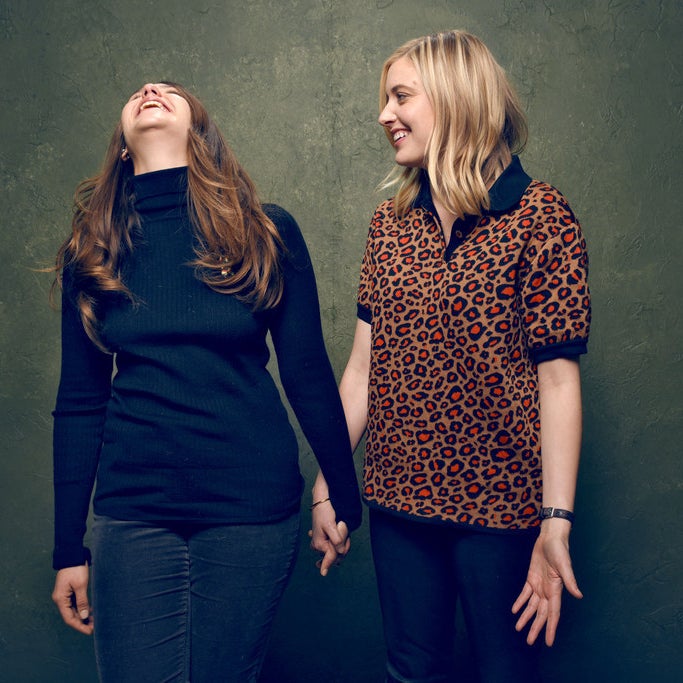
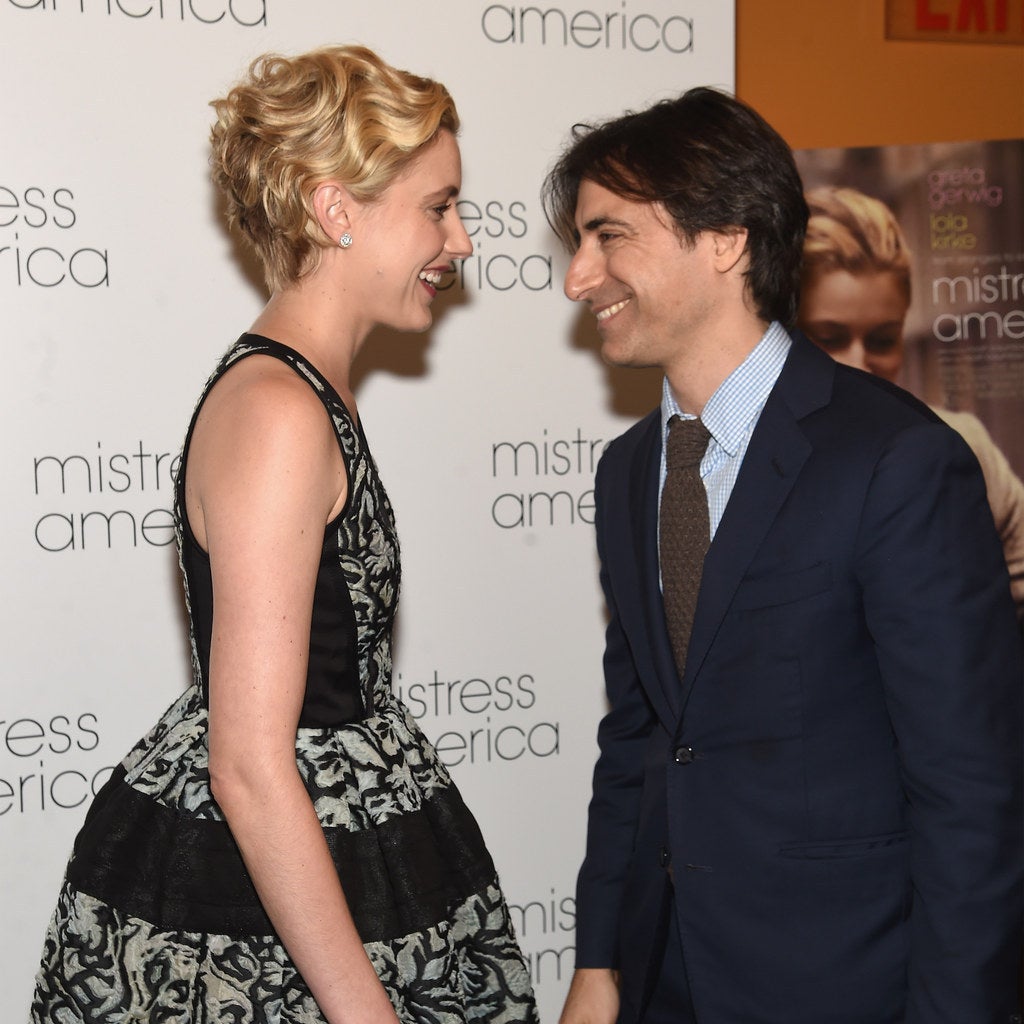
If things had gone differently, we'd be sitting here after the first season of How I Met Your Dad, which CBS ended up not picking up last year. How do you look back on that experience, Greta?
GG: I loved the guys who wrote How I Met Your Mother, and I loved Emily Spivey, who was working on this show. And it was very exciting to feel like I had a job, like a real job for a corporation. It was a new thing for me. The truth is, after Frances came out, I didn't get any jobs for, like, a while — 18 months or so. I was really struggling in terms of feeling like I had done something that I was so proud of and I felt like I had this authorship over. And I didn't feel like I had done quite that good of work in film. And then I had that experience of feeling like the telephone didn't ring. I don't do well when I don't work.
I feel like when it came up, it was like, You can work as a writer on this show, and it's a show — they need a show every week for 24 weeks! I mean, I think in some ways I hadn't totally thought through how much of a time commitment it would be. But I had some idea of like, This will be great. This will structure my year. I can do that, and when I'm not doing that, I can make these movies with Noah. I mean — if you had time and wanted to.
Not working for 18 months sounds stressful.
GG: I think the blessing and the curse of living an artistic life is that you have no certainty. Which is, I think, a good thing. And it also can make you a bit mad when you feel like, I don't know what my next job is. I don't know where any of this is going. I just felt like I was looking down the barrel of nothing on the horizon. Which was hard for me.
Noah, when you've gone and worked for those big corporations — which you have with some of your writing and with HBO's attempt to adapt The Corrections — what's it been like for you?
NB: With The Corrections, we were obviously working with HBO, but it didn't feel that different — HBO was pretty hands-off. What felt different was television. I underestimated the differences. On the face of it and in the cultural conversation, movies and TV get kind of conflated; they're both visual storytelling with actors and writing. And movies are now more often watched on the small screen anyway. But at least for me, what got lost in that is the difference in the medium. And the difference in telling an open-ended story repeatedly versus doing something that has this completion. And visually how you shoot them. In that way, I learned a lot.
You're known for doing many takes when you shoot movies. In Mistress America, were there scenes that were particularly difficult to shoot, or hard to figure out tonally?
NB: The closet scene we did a lot of takes on. It's like four pages of dialogue. And it's all one take. And the second half in the house, I wanted to use as much of the natural rhythm as we could and really have them hit their marks. Keep that pace as naturally as possible and not cut it up, because I think it's just a different effect. A lot of those needed to be rehearsed and choreographed and the camera has to be in the right place, the actor has to be in the right place — and there were a lot of actors. So everybody has to be working together. So those were probably the most challenging in that way. I don't know whether they were the ones we did the most takes on or not, but they were the most challenging.

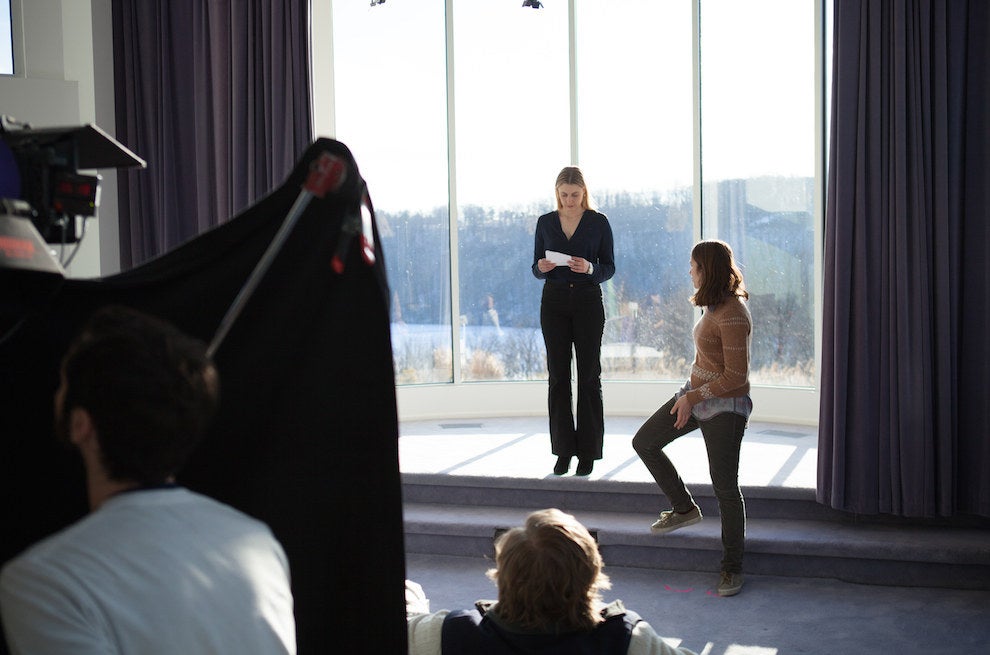
This was the movie you two were shooting when that New Yorker piece about you was being reported. And you were quoted, Noah, saying, "We're going for laughs more, maybe, as much as we go for them." There is a sweetness to this movie.
GG: I think in some ways the sweetness and the funniness of it allows it to have a kind of darker underbelly. Like in some ways, I think there's more sadness in this movie than in Frances to me. I don't know if you feel the same way?
NB: I know what you mean, yeah.
GG: There's something achier about this one to me. Even though both Frances Ha and this movie are both very written, and we don't do improvisation or change anything when we're on set, I think with Frances — though it is written, and it sounds like writing — we also wanted the writing to be kind of invisible in a way. And to feel like speech. In this, we allowed ourselves to untether a bit from strict realism in a way.
The perspective in the movie shifts throughout. Brooke really is cool but she also was a bully in high school and she's right that her ex-best friend Mamie-Claire stole her T-shirt idea — she's also scared and scattered and deluded. And in the case of Tracy, she seems sweet and earnest, but also maybe she is a sociopath. I felt like it was a journey —you're revealing things as the movie goes that make up a whole person.
NB: We were probably — in the writing of it — thinking about being as true to the characters as we feel we can, based on the requirements of plot and story. In some ways, it feels right to us at the time, but we're not necessarily going to the next step of what you're saying — actually beating it through and describing everything.
GG: Or we don't do that until late in the writing process. Like the scene when Brooke says to Tracy, "Mamie-Claire stole my ideas and my fiancé," that we didn't necessarily know.
NB: We decided it was true later.
GG: You sort of build it outwards in a way. It feels like when we write, it's intuitive. This is true of Frances, and it's true of this: I like it — and I think you like it — when something that is mentioned is played out later. That you actually go to meet Dylan and Mamie-Claire, and then you find that was real. There's something pleasurable about that. As opposed to just being a detail. The detail is the story in a way.
And also, I feel like most people aren't either/or, they're both/and. You're both magnanimous and petty. You're both kind and cruel. You're never just one thing. Yeah, Brooke was a bully in high school. Also in the biography of Brooke, her mom died when she was in high school. And I know that's not really explored, she doesn't talk about it as I was in a lot of pain when I was 15. But she was probably in a lot of pain when she was 15. And with Tracy, she's shy and she's insecure — but then underneath she's got all this weird, crazy confidence. I think those things often go together.
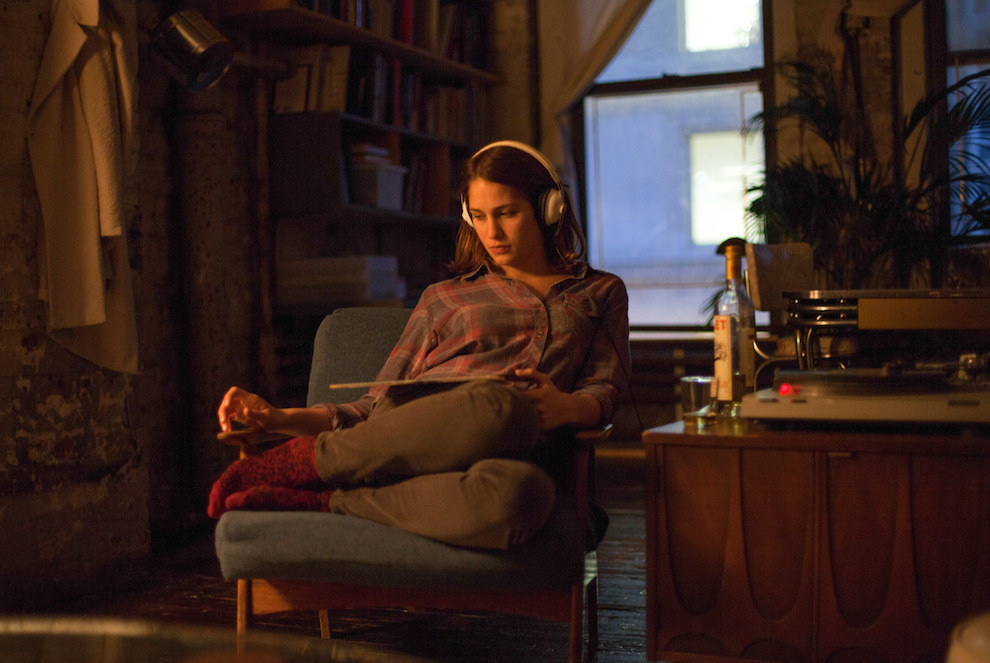
I wanted to ask about finding Lola Kirke. It seems like a hard part to cast.
NB: It's one thing writing Brooke: We know Greta's going to play it. With Tracy, if you don't find the person, you kind of can't do the movie. We auditioned a lot of people. And with Lola, we brought her back a lot of times and she and Greta had a really great energy together. By the time we cast her, we'd really heard her do a lot of the script.
GG: It's such a big role. She hadn't really done anything before. And she really did want to be an actor, and had really worked hard on it, and has since continued doing things. But because it takes so much time and so much work, you want to be certain that the person is really in it, like, wants to be doing it. Because it's too much work to ask someone who doesn't really care. But she did really care. I remember the day when you shot with her and her mom—
NB: With Katie Erbe.
GG: You said, "She's really got chops. She could really do it." But in some ways, you didn't know that about her when you cast her — you try to know, but you don't totally know until you're on set. And then you're like, Oh, you're really good at this. You can really do this.
Brooke is a social media star. But it's not really getting her anywhere. Is that what you think about that life?
NB: She knows it's something she's supposed to be doing, but it's not a natural fit for her. Even her living in Times Square, there's something of another time about Brooke. We were thinking with her wardrobe she was kind of '90s era. She's playing some romantic idea of herself and the city, but she would have to contend with what's going on now. It's almost like one of those time-travel movies where someone has to figure out how to work a phone or something. She knows enough to know she's got to be doing it. But it's not her thing.
GG: She's not deft at it. And she's not subtle about it. Even the way she speaks about it, she says, "Just a quick tweet on Twitter." It's so horribly awkward.
Well, she does successfully present herself as fabulous.
GG: If somebody was taking pictures at a party, she would make sure they took a picture of her. She would get in front of the photographer and say, "Can you take a picture of me?"
NB: She's a gal about town.
She's a mess. But to me she was less of a mess than Frances. At first, at least from outside appearances, she's trying to head in a specific direction.
NB: They're kind of in different worlds. There was something about the character even in its early stages that I think made us think about people we knew when we were in college or just out of college that sort of seemed impactful on us. People who, from a more youthful perspective, seem kind of amazing, and then very quickly you kind of outgrow. Like a living imaginary friend or something. She could only kind of exist for this time in Tracy's life. Tracy is — in some ways necessarily — going to have to kind of dispense of her.
GG: I'm thinking of when I was 18 — or even now, I'm prone to still idolizing or falling under people's spells. You know someone, and they have a bar they go to and they know everyone, and it's so great. And you think, Oh my god, what a great character! And they know all these people! And then you realize two weeks into it, they're an alcoholic. They're there every night; that's just a sadness for them. But the first time you experience it, it's so great and they've got stories and they can really hold their liquor.
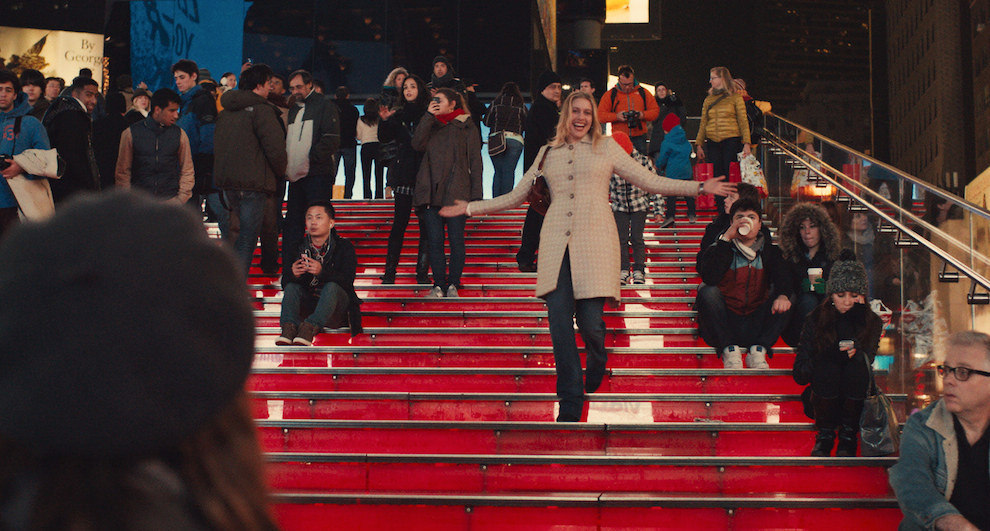
Brooke is obsessed with age, and the movie is too. It's obviously an area of interest thematically to both of you. What do you feel like Mistress America is saying about aging?
NB: Brooke's lifestyle — she's at an age where it's not sustainable. She's not old by any stretch, but she can't keep doing what she's doing. It was true of Frances to a different degree at a different age. We're less sort of thinking about saying anything about aging, but more about necessary transitions we all go through at different points in our lives. And they're all various aspects of growing up.
GG: It's less about aging, like you said, and more about how difficult it is to let go of something that didn't happen. That you thought should have happened. And I think that happens for everyone from 15-year-olds to 70-year-olds. You keep learning how to let go and to live the life that you actually have, as opposed to the life you thought you were going to have.
Noah, you grew up in New York, and Greta, you've now lived there for years. The fact that a Brooke doesn't have a place anymore in New York City is a real thing. I'm from New York too, and it made me sad — the idea of the last cowboy. That is real about New York, especially when you have the characters sitting in Veselka.
NB: This character in some ways exists in her own mythology, but I think we even thought of her in a certain kind of filmic mythology of these larger-than-life comic characters who dominate movies and whisk people away and take them on adventures. That are seductive and dangerous and funny — but then having that character come face-to-face with contemporary reality. That both had comic effects, like the social media stuff or the way she talks about all her different professions, but there is that sadness that this person can't exist in contemporary New York City, and she comes up against it. She doesn't live in 1982.
GG: It's so expensive and official now. Even the idea of her living in a commercially zoned space, even those spaces are disappearing. You can't live on, like, your wits and a smile anymore. And I didn't even know a New York like that; by the time I got there it was a different New York. But I have an idea of that New York. Whenever you read that someone has passed who was there for Andy Warhol's Factory or was there at the start of Interview magazine — those kinds of things. And you're like, that was one of the good ones. You feel sadness for that time passing. New York is a city that keeps reinventing itself, and I love it so much. But a Brooke has trouble there now.
This interview has been edited and condensed.
